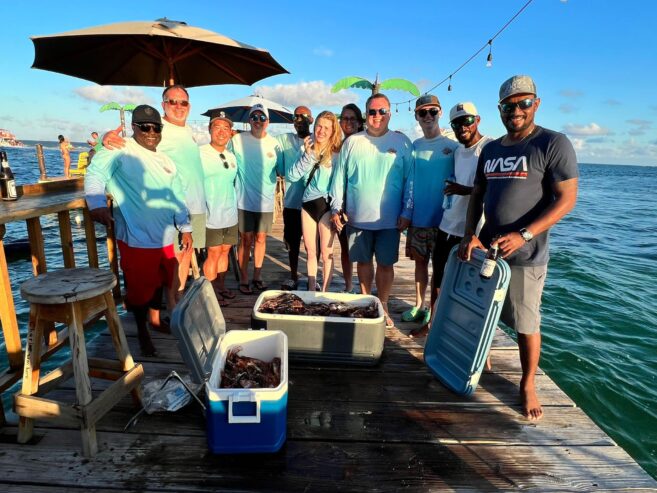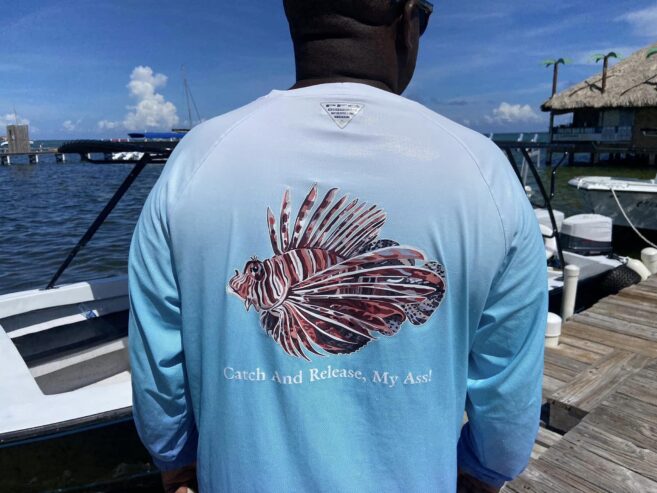The Lionfish, an invasive species in Belizean waters, felt the brunt of the ongoing campaign to reduce its presence in Belize. On October 7th, Reef Adventures in San Pedro Town held its annual Lionfish Tournament for the third time, attracting 12 teams. The event awarded the three top teams who caught the most lionfish, with Team Carma again taking the top prize.

Team Carma was also the winner of the 2022 Lionfish tournament and defended their title, sealing the big win with a total of 371 lionfish. Team Ramons, with 247 lionfish, was in second place, and Team Chingon brought back 152 of the predatory fish.

On competition day, teams headed to sea early in the morning and returned by 4PM. According to organizers, the idea for starting the tournament was to join the battle against this invasive and predatory fish from Belize’s waters and barrier reef. They hope to get more teams to participate next year.

Lionfish significantly threaten marine life as it feeds on juvenile fish. This fish, which may appear very attractive, is native to the Indo-Pacific region. The first lionfish sighted off the coast of Florida in the United States of America (USA) was in 1985. It is suspected that a lionfish was kept as a pet and later released by its owner. It is believed that it was not the only one, and for about 20 years, people saw them occasionally off the coast of Florida. These lionfish started to breed, releasing eggs into the water, which then moved in the ocean currents, reaching areas like the Caribbean Sea. In 2004, the first lionfish was seen near The Bahamas. From there, the population quickly spread across the wider Caribbean region, including the Gulf of Mexico. Lionfish are now found as far north as New York, USA, and south as Brazil.  Throughout the Caribbean, the invasion of lionfish poses a pervasive threat to marine ecosystems and coastal fishing communities where it has no natural predators. In Belize, the fish was first recorded in 2008 and became well-established across the country’s marine environment. Marine biologists said that uncontrolled, invasive lionfish populations can disrupt marine food webs, negatively impacting the health of coral reefs and fisheries productivity. In addition, it can also undermine the resilience of coral reefs and reef-associated systems to global change.
Throughout the Caribbean, the invasion of lionfish poses a pervasive threat to marine ecosystems and coastal fishing communities where it has no natural predators. In Belize, the fish was first recorded in 2008 and became well-established across the country’s marine environment. Marine biologists said that uncontrolled, invasive lionfish populations can disrupt marine food webs, negatively impacting the health of coral reefs and fisheries productivity. In addition, it can also undermine the resilience of coral reefs and reef-associated systems to global change.


